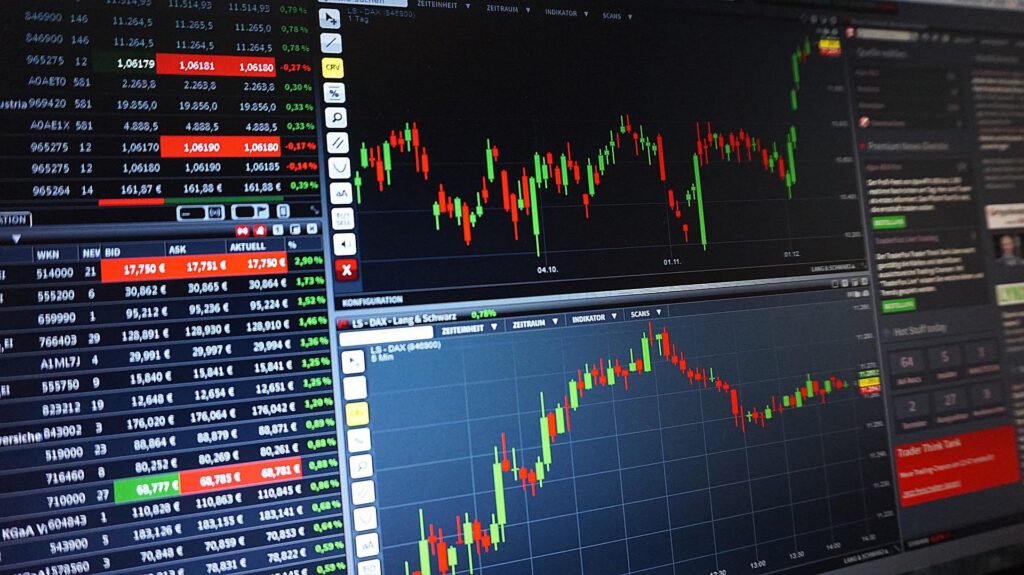What is Forex Trading?
Forex Trading is a type of transaction that involves the buying and selling of currencies. There are several reasons why individuals and organizations engage in Forex trading some of this reasons include:
- Making Profit.
- Market Regulation.
- Trade Facilitation.
- Tourism Encouragement, etc.
The Legal Regime of Forex in Nigeria
With the rise in Forex trade and deals in Nigeria, questions about its transactions legality have popped up. The foreign exchange market in Nigeria is highly volatile owing to the dependence of the country on oil which is the major foreign exchange earner.
Due to this, the Nigerian government, through the Central Bank of Nigeria, has tried to come up with measures to regulate this sector. Foreign exchange regulations and laws empower the Central Bank to make policies that controls foreign exchange transactions in Nigeria.
Some of these laws and policies include:
- The Exchange Control Act of 1962.
- The Central Bank of Nigeria Act.
- Banks and Other Financial Institutions Act, 2007.
- The Foreign Exchange (Monitoring and Miscellaneous Provisions) Act.
- The Money Laundering (Prohibition) Act.
- Second-Tier Foreign Exchange Market 1982.
- Bureau De Change 1989.
- Autonomous Foreign Exchange Market (AFEM) 1995.
- Foreign Exchange Market (IFEM) 1999.
These laws and regulations empower the CBN to periodically regulate transactions that are carried out in foreign currencies.
Offline Forex:
Foreign exchange transactions conducted by banks and other authorized dealers are well regulated by the Central Bank of Nigeria. The Central Bank regulations permit banks and other approved bodies to engage in foreign exchange trading.
Online Forex:
Online Forex transaction in Nigeria is relatively new and no specific rules have been set in regards to regulation. However, there is a body called the Association of Online Forex Trading Agent in Nigeria. This body which is recognized by the government is working with the CBN and other regulatory agencies to come up with a working framework for the trade. Having said that, local Forex traders must abide by the existing laws to operate legally in Nigeria.
Most people who are currently into the Forex business don’t understand its legal framework and are advised to consult authorized dealers or brokers for better understanding. In Nigeria, it is illegal to trade with other people’s funds as only licensed brokers are authorized to do that.
The Law and Nigerian Forex Trading
The Central Bank of Nigeria and Security and Exchange Commission are the regulatory body for Forex traders. For a Forex trader in Nigeria to make money in a legitimate way they should have to stay on the side of the law. Every Nigerian trader has the legal backing to operate in Nigeria on his own or use a legitimate broker to trade. Forex traders should also note that declarations of earnings as well as payment of taxes are compulsory actions that must be carried out by the Forex trader just like every other business organizations. Any organization from which the government legitimately takes tax is an approved business and has legal backing. In most countries around the world, the foreign exchange market is regulated. These regulations are put in place to protect traders.
Online Forex trading in Nigeria has not been around long, but it is currently regulated. However, foreign exchange trading is regulated by the Central Bank of Nigeria. This financial institution makes trading in foreign exchange possible, but the trade has to be done by banks or brokerage firms that are registered in the country. To get more information about this, there is the Foreign Exchange Act of 1995 as well as the Foreign Exchange Manual, which was penned in November of 2006.
There has been an increase in Nigerian foreign Forex brokerage firms, and many are now based in the country. The brokers have to meet certain requirements to be fully legal to trade on the market on behalf of clients. There are trading watchdogs out there, and you can use their websites to see if a Nigerian Forex trading brokerage firm is legal to trade through. Just because there is a Forex trader in Nigeria, it does not mean they are legal and can trade for you in the market. Forex trading in Nigeria is growing every year with more and more brokerage firms in Nigeria and making sure they are legal and can trade is vital before using them to trade your money.
However, in Nigeria, when it comes to Forex trading regulations, there are still much work to be done. With an increase in banking policies in Nigeria, Forex trading in the country has been affected. There are no clear-cut rules or regulations in place in Nigeria when it comes to Forex trading in Nigeria. While the practice is not illegal, Forex brokerage companies that deal with online trading have worked together to ensure that proper regulations are put in place sooner rather than later. Once the regulations are in place by the government of Nigeria, the Forex traders in the country will have a better framework to trade in a totally legal manner.
You should be aware that it is illegal to take care of people’s money through a broker that does not have a license to be a manager of funds by a regulation body such as the Central Bank of Nigeria.
When it comes to Forex trading, there are many benefits when doing so in a regulated market. Your investments are safe, you can be compensated by a governing body, and you can turn a profit, and it does not matter if the market is going up or down. However, in Nigeria or no matter where you are, it is important to know when to stop. Even in trading in a Forex market that is regulated, you can still lose money. If the strategy you have in place is not working then regroup and come up with another one.
From the above explanation on Forex operation in Nigeria. It is important to raise some legal issues and attempt to answer them in line with the law on Forex trading in Nigeria
Some Legal Issues on Forex Trading
Is Forex trading illegal or legal in Nigeria? Forex trading is a legal business in Nigeria subject to trading with licensed and authorized broker.
Who can trade Forex in Nigeria? The central bank of Nigeria regulates the activities of Forex traders in Nigeria, such as commercial banks and other licensed financial institutions that have duly obtained the necessary approval from the CBN and Security and Exchange Commission.
Section 39 (1) of the Investments and Securities Act (ISA) 2007, states that; “only persons registered with the commission can engage in capital market activities”. SEC advised the general public to refrain from investing in any scheme from unauthorized firms and warned that anybody that invests in any unlicensed/unlawful scheme does so at their own peril.
What legal remedies are available to a party for breach in Forex Transaction: In my opinion a person can maintain an action in a court of law against a registered and authorized Forex dealer in Nigeria depending on the terms of the transaction just like every other business transaction. But where such action is brought against an unregistered and an unauthorized dealer the entire transaction in itself is a nullity in law and has no remedy, since an action cannot be brought to enforce an illegality.
However, an action might be brought in criminal proceeding for financial fraud provided that it can be established that there was such intention to defraud on the part of the Forex brokers and the complainant has lead evidence to show that he wasn’t negligent on his part.
To further protect oneself from likely loss in investing in Forex, intended Forex trader can pen down an agreement with the Forex brokers. This can be enforced in court in future. Party might put a general statement in the agreement that the money invested was for business purpose without necessarily stating Forex trading. The investor should ensure that there is no disclaimer or indemnity clause protecting the company against eventual loss of his investment, and then one can bring an action for breach of contract.
The Security and Exchange Commission: on several occasions has cautioned the general public to be careful and carry out proper check before investing in Forex. On other times, it has published names of company or Forex broker operating illegally.
It is advisable to carry out due diligence before investing in Forex trading. And until online Forex brokers are duly authorized in Nigeria it remains a risk to trade with them as there is no existing law on ground guide their operation. Except one would choose some well-known brokers that are regulated by some other countries and trade with them subject to the extant law of the country regulating them. For the UK the Financial Conduct Authority (FCA) is an independent regulatory organization saddled with that responsibility.



I would like to thank you for the efforts youve put in writing this site. I am hoping to see the same high-grade content by you in the future as well. In fact, your creative writing abilities has motivated me to get my own, personal site now 😉
https://empress-escort.com/escort-girls-beer-sheva/ Delcie Farnham